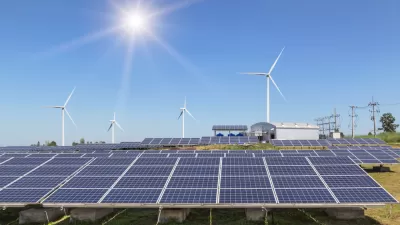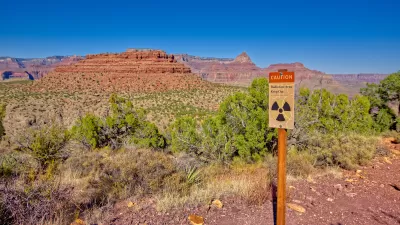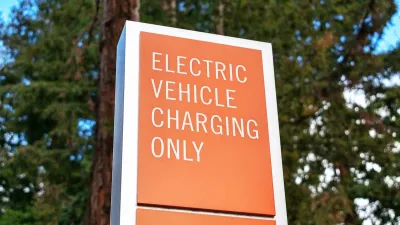The El Respiro / Respire event at USC uses a large-scale human geochoreography to demand an urgent and equitable transition to green energy, blending art, activism, and community engagement to amplify the message of climate justice.

At the University of Southern California (USC), the Visions and Voices event El Respiro / Respire will transform McCarthy Quad into a stage for climate justice activism. Led by artist and USC alumna Carolina Caycedo, participants will form a human "geochoreography," spelling out “Just Transition Now” in English and Spanish to demand an urgent shift from fossil fuels to renewable energy. The performance, captured by drone photography, highlights the intersection of art, activism, and environmental justice, with Caycedo emphasizing that a just transition must be inclusive of all workers, communities, and nations. The event, co-organized by the USC Wrigley Institute for Environment and Sustainability, will also include a panel discussion on just energy transition, featuring experts from various disciplines.
As reported by Rachel B. Levin, the initiative is part of Caycedo’s broader project, We Place Life at the Center, which encompasses exhibitions, publications, and educational programs focused on ecological movements. Preceding the performance, grassroots environmentalists and artists from the United States, Latin America, and the Caribbean will participate in a four-day retreat at the USC Wrigley Marine Science Center on Catalina Island. This gathering serves as a space for knowledge exchange and reflection, reinforcing the importance of collective action in addressing climate change. The exhibition, which first opened at the Vincent Price Art Museum, spotlights community-led sustainability efforts, underscoring the necessity of a holistic approach that includes sustainable land and water stewardship, food-system changes, and Indigenous knowledge.
For Caycedo, bringing the event to USC is an opportunity to bridge academic research with real-world activism. By engaging students and faculty, she aims to foster new networks of solidarity that extend beyond campus and into broader environmental justice movements. She also sees the geochoreography as a moment for participants to reflect on their role in climate action, using USC’s core values as a lens to consider their connection to the land, community, and global ecological systems. Unlike traditional gallery exhibitions, Caycedo envisions the drone image generated from the event as a tool for advocacy, widely shared across social media to amplify the call for an equitable and immediate transition to green energy.
FULL STORY: Spelling out the urgent need for a green energy transition

Maui's Vacation Rental Debate Turns Ugly
Verbal attacks, misinformation campaigns and fistfights plague a high-stakes debate to convert thousands of vacation rentals into long-term housing.

Planetizen Federal Action Tracker
A weekly monitor of how Trump’s orders and actions are impacting planners and planning in America.

In Urban Planning, AI Prompting Could be the New Design Thinking
Creativity has long been key to great urban design. What if we see AI as our new creative partner?

King County Supportive Housing Program Offers Hope for Unhoused Residents
The county is taking a ‘Housing First’ approach that prioritizes getting people into housing, then offering wraparound supportive services.

Researchers Use AI to Get Clearer Picture of US Housing
Analysts are using artificial intelligence to supercharge their research by allowing them to comb through data faster. Though these AI tools can be error prone, they save time and housing researchers are optimistic about the future.

Making Shared Micromobility More Inclusive
Cities and shared mobility system operators can do more to include people with disabilities in planning and operations, per a new report.
Urban Design for Planners 1: Software Tools
This six-course series explores essential urban design concepts using open source software and equips planners with the tools they need to participate fully in the urban design process.
Planning for Universal Design
Learn the tools for implementing Universal Design in planning regulations.
planning NEXT
Appalachian Highlands Housing Partners
Mpact (founded as Rail~Volution)
City of Camden Redevelopment Agency
City of Astoria
City of Portland
City of Laramie





























